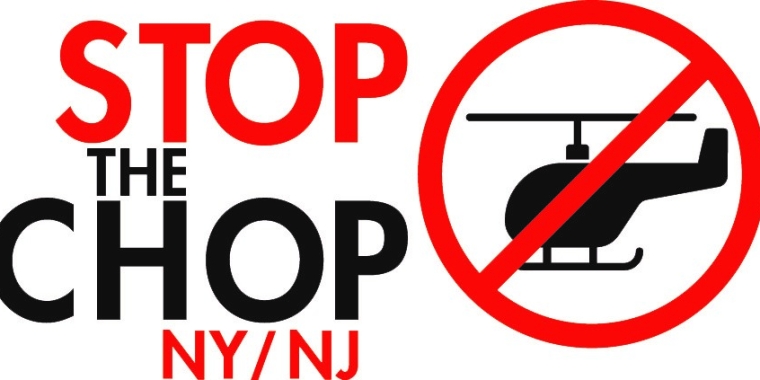
Yes, You Can Still Be Fired for Being Fat
People who are fat face bias in every corner of life. They’re more likely to be bullied in school, stigmatized by doctors, and convicted of crimes by juries. Survey respondents rate people who look overweight as lazier, weaker-willed, and less likely to win on Jeopardy!
When the humiliations extend to the workplace, the costs can be all the more easily measured in dollars and cents. People who are overweight are hired less, promoted less, and paid less. One study suggests that for every 6 pounds an average American woman gains, her hourly pay drops 2%. And people signing paychecks subject heavier workers to a gantlet of additional punishment, coercion, and harassment. “It is endemic,” says Claudia Center, the legal director for the Disability Rights Education & Defense Fund, an advocacy group in Berkeley, Calif. One of her past clients, a cable installer, got risky weight-loss surgery after his company banned him from returning to work unless he lost about 100 pounds. His bosses thought he was too heavy to use their ladder, and they wanted to keep the ladder.
Unlike other forms of discrimination, companies can get away with such treatment because, in most places in the U.S., there’s no clear law against it. Only the state of Michigan and a handful of cities, such as San Francisco; Madison, Wis.; and Urbana, Ill., ban discrimination based on weight. (In contrast, more than half of U.S. states have laws protecting people who smoke cigarettes on their own time.) In 2013 a New Jersey Superior Court judge ruled that because the state hadn’t clearly outlawed weight discrimination, an Atlantic City casino was within its rights to regulate the weight of its “Borgata Babe” cocktail waitresses. “Plaintiffs cannot shed the label ‘babe’; they embraced it when they went to work for the Borgata,” wrote Judge Nelson Johnson, who’s also the author of Boardwalk Empire.
Now, activists in New York and Massachusetts appear to have the best chance in decades to extend weight-based antidiscrimination protections to tens of millions of Americans. A pair of bills working their way through the states’ legislatures would ban discrimination based on weight or height in housing, public accommodations such as hospitals, and employment. “My body is not a failure, nor does it need to be fixed,” Janet Conroy-Quirk, who’s advocating for the Massachusetts bill, wrote in testimony supporting its passage last year. “The systemic flaws and fatphobic mentality that allow weight discrimination are the problem.”
Although the federal Americans With Disabilities Act prohibits discrimination based on real or perceived physical impairments that substantially limit major life activities, judges have been hesitant to rule that weight should be considered one of them. In rulings around the country, federal judges have written that deeming all obesity to be a disability could create a slippery slope to protecting “grossly short” people; that a firing because of a boss’s belief that “fat people are essentially undisciplined and weak” would be OK because the boss wasn’t suggesting the worker was physically impaired; and that a plaintiff’s heaviness was akin to such unprotected traits as a “neon green mohawk.”
Specific protections can spur better treatment. Michigan’s law made possible a lawsuit, resolved on undisclosed terms, by a store manager for the luxury retailer Coach who alleged that the company had promoted her when she was petite, then fired her when she wasn’t, after it first pressured her to take weight-loss hormones, get bariatric surgery, and eat more Lean Cuisines. (Coach declined to comment.) In San Francisco a settlement with an aerobics instructor forced Jazzercise Inc. to stop requiring its dance fitness teachers to “look leaner than the public.” (“Recent studies document that it may be possible for people of varying weights to be fit,” the company acknowledged.) A 2016 study found that protections in Madison and Urbana significantly increased the employment of people with obesity.
“Laws are often a reflection of cultural norms,” says Jane Korn, the former dean of Gonzaga University School of Law. In the 1990s, the first time Korn submitted a paper about weight bias to journals around the country, she got a bunch of calls from law students reviewing her draft who wanted to know if she herself was overweight. In the following decade, U.S. Surgeon General Richard Carmona called obesity a “terror within” that could “dwarf 9/11.” He described it as a crisis to be solved with personal discipline rather than public policy.
The truth is, Americans don’t have as much control over their weight as they like to think. Research suggests that our bodies are more a product of our genes and environment than of our willpower and that major reductions in weight tend to be temporary. Studies have found that many people considered overweight are metabolically healthy and that lifestyle habits such as exercise and vegetable consumption together reveal more about a person’s mortality than body mass index (BMI).
The U.S. has begun to catch up with the science, if slowly. A “Health at Every Size” movement, which promotes nutrition and exercise rather than weight loss per se, has been gaining ground among both doctors and patients. “The conversation wasn’t happening 10 years ago,” says Katie Sturino, whose advocacy for body acceptance has earned her an audience of 680,000 followers on Instagram and a small empire as a writer and consultant. Sturino’s posts include photos of her remaking celebrity outfits in her size. She’s working with Amazon.com Inc. to develop a line that includes size 4X and 5X clothing that will go on sale later this month. “It’s not about your body being wrong,” she says. “It’s about the brand that doesn’t make clothes that fit.”
Companies and media outlets that once operated to some degree on fat-shaming are now swinging a bit the other way. Vogue magazine, which over the decades has promoted a Cottage Cheese Diet, a Chinese Diet, a Champagne Diet, and a Grape Diet, in 2020 instead profiled intuitive eating: the antidiet diet of eating what you’re hungry for, when you’re hungry for it. Good Housekeeping magazine, whose turn-of-the-century cover paired a Meg Ryan profile with a Soup Diet to “Lose 10 lbs. Fast!,” recently published its own Anti-Diet Culture Series, with articles about fatphobia, body acceptance, and the limited usefulness of BMI. Plus-size women now grace the Sports Illustrated swimsuit issue and appear in ads for Dove soap and Victoria’s Secret underwear. Abercrombie & Fitch, long known for its abs-festooned catalog, now sells Curve Love jeans.
Yet for every fat-accepting corner of internet culture, there’s another pushing unrealistic beauty standards, and the view of fat as a personal failing remains widespread. “People may not even know they’re biased against people with obesity, people of size, but are making decisions based on it,” says Patricia Nece, a recently retired attorney for the U.S. Department of Labor who chairs the 75,000-member nonprofit Obesity Action Coalition. “Employers reflect society. They’re not immune to it.”
Expanding civil rights protections is hard. It tends to take decades of movement-building and attitude-transforming, often combined with tough compromises and good luck. The Civil Rights Act of 1964, for example, followed a generational protest movement. It ended up including a ban on gender bias only thanks to an amendment from a segregationist congressman who hoped it would tank the entire bill. That sex discrimination clause then got read a half-century later by the U.S. Supreme Court to ban bias against LGBTQ people, types of discrimination that Congress had failed for years to outlaw specifically despite strong public support for such a move. In 1990 the Americans With Disabilities Act emerged from fierce fights in Congress with clauses that excluded pyromaniacs and “transvestites” from protection. It also required that the government review which diseases could be spread by handling food, a clause inserted to address baseless fears about letting people with HIV work in restaurants.
When judges or lawmakers weigh who’s covered by existing civil rights laws or who they should be expanded to protect, a frequent concern is the question of what’s called immutability, meaning whether the trait that’s the subject of the discrimination is one a person can’t change. That poses a challenge with weight, which many Americans see largely as a matter of individual choices and discipline. In that respect, weight is comparable to credit history or criminal records, both of which the government has been hesitant to ban employers from judging workers on, says University of Tennessee law professor Brad Areheart.
But the mutability of weight is overstated. Even the pound-shedding reality-TV gladiators of The Biggest Loser usually regain most of the weight they lost, National Institutes of Health researchers found. And when it comes to civil rights, the weight of immutability is overstated, too. People can choose to change their religion, but the Civil Rights Act bans bias based on religion anyway, because it isn’t something most Americans think people should have to change to get a job. Disability can change over time and can stem from people’s choices, whether driving a car or fighting in a war.
New York Senate Judiciary Chair Brad Hoylman says he took an interest in weight bias after his tween daughter told him just how prevalent fat-shaming and diet pressure were online. After his daughter complained that the trendy “one-size-fits-most” company Brandy Melville had no clothes that fit her larger friends, Hoylman began reading about allegations that the company discriminated against workers who were Black or overweight. (The company didn’t respond to inquiries.) About the same time, Assemblyman Thomas Abinanti came across his own surprise. He read about a New York City Council member’s never-passed proposal to ban weight and height bias, which he’d never realized was still legal, and figured the whole state could use such protections.
Now the two lawmakers and the Retail, Wholesale & Department Store Union have teamed up to try to pass a bill this year that would make weight and height protected categories under the state’s civil rights laws. Hoylman, who represents Manhattan, says it’s a fitting follow-up to other nondiscrimination bills the state passed in recent years, including measures that ban bias based on gender identity or hairstyles such as Afros. “I think we can continue to press the outer limits of protections,” he says. “It just seems obvious that someone should not be body-shamed out of an employment prospect.”
Weight bias is widespread in retail, says Eno Awotoye, an organizer for the RWDSU’s Retail Action Project, which mobilizes nonunion workers to try to improve the sector. Awotoye, who spent a couple of decades working retail jobs, says that higher-end brands tell job seekers to provide a photo with their résumé and that heavier workers get passed over for promotions or stuck in the back, stocking shelves for less pay than sales reps. Some get told after gaining weight that they no longer “fit the image” the company wants, and many retailers insist that sales staff wear their own brand on the job while refusing to provide apparel that can fit larger employees.
To get the New York bill passed, the RWDSU plans to mobilize workers who’ve experienced or witnessed such discrimination to lobby lawmakers and testify at hearings. The union is also discussing other tactics: placing columns in neighborhood newspapers, circulating petitions from constituents, holding rallies, and setting up mock “changing rooms” where people who want to anonymously share discrimination stories can be videotaped behind a curtain.
Finding retail staff ready to publicly share their discrimination stories has been tough, says Awotoye. In part, people fear the social stigma of calling attention to their weight, she says. The more pressing concern is potential blacklisting by future employers, especially at the luxury brands that pay better. But that’s an obstacle that can and must be overcome to get the bill enacted, she says.
The bill’s backers say their state is ripe for a breakthrough. The New York state legislature’s center of gravity has been shifting increasingly leftward in recent years. Democratic Governor Kathy Hochul has a business-friendly image, but she’s been hustling to shore up labor support as she seeks election for a full term in November.
New York Assembly Member Linda Rosenthal, who’s been introducing her own narrower bill to ban workplace weight discrimination each session since 2017, says the culture beyond Albany has shifted, too. Even a few years ago, “I don’t think society was ready,” she says. “I definitely think it’s changed, and it’s continuing to change, based on people who are discriminated against saying, ‘I’ve had enough.’ ”
In neighboring Massachusetts, the decades-long push to ban weight bias is getting new momentum. A bill passed the state legislature’s Judiciary Committee in February and is now pending at the Senate Ways and Means Committee, which could tee it up for a floor vote. “This is an issue that has been discussed for a long time, and it’s just now starting to get some traction,” says workplace plaintiffs’ attorney Shannon Liss-Riordan, who’s running to become the state’s attorney general. Liss-Riordan expects the weight bill to pass and says she’s eager to deploy it to fight discrimination. “It just fits into our overall framework that people should be judged based on their abilities and their qualifications for a role and not based on factors that are irrelevant to how well they will perform,” she says.
Massachusetts’ current attorney general, Maura Healey, a Democrat who’s favored in this fall’s race to replace retiring Republican Governor Charles Baker, said in an emailed statement that she supports legislative efforts to protect residents from weight discrimination.
Employers tend to oppose laws that would impose limits on their ability to fire employees. But no major business lobby is rushing to speak up for weight discrimination. A spokesperson for the Associated Industries of Massachusetts, the state’s leading business lobby, said in an email that the issue “is just not one of our priorities at this point.” The Partnership for New York City, a business group whose executive committee includes the chief executive officers of JPMorgan Chase, Pfizer, Macy’s, and Loews, takes a similarly sanguine view. “I would be surprised if anyone were opposing this legislation,” says the group’s CEO, Kathryn Wylde. Companies are frustrated that legislators keep “unnecessarily inserting themselves in the employer-employee relationship,” she says, but discrimination is something they already avoid.
Nationally, employers have also been pretty quiet about the issue. “We do not have an established position officially but, of course, do not support any form of discrimination,” the U.S. Chamber of Commerce’s communications vice president, Tim Doyle, said in an email. The lobby’s Michigan chapter rarely hears from members about that state’s singular weight bias ban and isn’t angling to get it changed, says Wendy Block, the state Chamber’s vice president for business advocacy and member engagement. “We’re not necessarily saying that all states should run to add this to their laws,” Block says. “Once a law is passed, you have to figure out a way to live with it, and that’s what has happened in Michigan.”
From $15 wage floors to antigay bias bans, workplace reforms tend to be secured in cities and states before fully forcing their way onto the national agenda. New York’s and Massachusetts’ legislative sessions both end this summer. Making either the first state in almost a half-century to ban weight bias would be an electrifying win for the cause.
Law and social norms both shape each other, says the Massachusetts bill’s Senate sponsor, Becca Rausch. “Fatness for so long was seen as a personal failure and only as a personal failure, which is why I think it is still a legal form of discrimination,” she says. “The existence of this law, as enacted, will help to further break down stigma.”
Activism for the rights of overweight people has a long history in the U.S., but it hasn’t yet gathered the momentum or reached the mainstreaming of some other movements that left their mark on the country’s laws. Advocates say they’re making headway, with help from recent scientific research and inspiration from the sea change in attitudes toward other groups such as LGBTQ Americans.
There’s a good chance that the antidiscrimination legal campaigns and Americans’ changing attitudes will continue to help each other in tandem. “The cultural shifts around acceptance of fat and questioning the diet industry and the pervasiveness of diet culture, some of those things have empowered more fat people individually to think about, ‘Oh, when my rights are being violated, this is not my fault,’ ” says Tigress Osborn, who chairs the 53-year-old, volunteer-run National Association to Advance Fat Acceptance.
Janet Conroy-Quirk, the activist now lobbying for the Massachusetts bill, has started to see changes, too, but she says the law needs to be passed to speed them up. She’s spent years in social work facing regular humiliations. When she complained to her bosses at one nonprofit that certain clients kept calling her fat, they told her to suck it up. After she told her boss at another nonprofit that urging employees to join a workplace weight-loss contest was insensitive, she got dinged on her performance review. At a third nonprofit, where she applied for an outreach job, a manager looked her up and down, stared at her stomach, and asked, “Do you really think that you can represent this organization appropriately?”
Conroy-Quirk has gotten used to being misjudged and maligned because of her size. She’s been harassed on the way home from church by men making pig noises, and a doctor she saw about an in-grown fingernail assumed she was diabetic. But the workplace hurdles she’s endured have been particularly aggravating. “In a beauty salon, maybe I’m not as surprised that I’m being treated kind of crappy,” she says. “But I expect something different at, for example, an organization that serves children.”
The former social worker, who has been meeting with legislators and submitted testimony for a recent hearing, says becoming an activist has helped assuage the guilt she felt after giving up on social work. “Four years ago, I was cutting the size labels out of my coat so people on the subway couldn’t see what size I was,” says Conroy-Quirk, who now runs her own business, a guide to help larger customers find welcoming places to shop. Now, between her business and her activism, “I’m out there announcing what size I am to everybody.”



